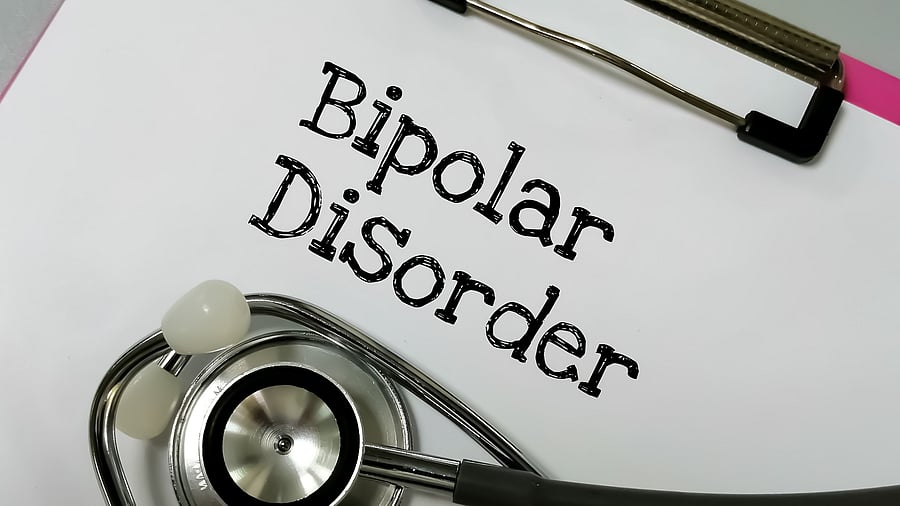
Representative image indicating a bipolar disorder diagnosis
Credit: iStock Photo
Gopika Nair (name changed to protect privacy), a consultant in Bengaluru, has just returned from a trip to visit her three-year-old daughter. This visit was long-awaited, as she hadn’t seen her child since her last episode two-and-a-half months ago. Her husband, who had been supportive throughout her journey of being diagnosed with bipolar disorder, is currently separated from her. One severe bipolar episode was enough to unravel everything good in their lives.
“He was very supportive until the episode, and, the future of our marriage is uncertain until my husband fully heals from the episode. I believe from a caregiver’s perspective this is reasonable,” says Gopika.
For Gopika and other women with bipolar disorder, life is far from easy. They are constantly under pressure to be the perfect daughter-in-law, wife, mother, and professional, striving for perfection in every aspect of life. From the burden of domestic chores to managing their own medical care, navigating pregnancy, and dealing with hormonal changes, bipolar disorder adds another layer of complexity.
In Gopika’s case, a disagreement with her psychiatrist led her to seek a second opinion. A new doctor adjusted her prescription, discontinuing some antipsychotics, which may have triggered her relapse.
“It took just one episode, one wrong prescription, to topple my life upside down,” says Gopika.
A saga of misdiagnosis
According to the Indian Psychiatry Journal, many women with bipolar disorder initially present with depressive symptoms and are often misdiagnosed with unipolar depression. Bipolar disorder appears differently in women — it typically begins later in life, follows seasonal patterns, presents with atypical symptoms, and involves more mixed episodes. Women with bipolar disorder are also more likely to have co-occurring conditions like thyroid disease, migraines, obesity, and anxiety disorders.
Dr Hema Tharoor, a consultant psychiatrist in Chennai, explains, “A lot of personality-related conditions, like borderline personality disorder, get misdiagnosed as bipolar disorder. Mood swings, extreme emotional instability, and sleep disturbances — symptoms common in bipolar disorder — can also be seen in acute personality disorders. Often, the personality aspect is overlooked. Over the years, we've started recognising the overlap between these conditions. Many cases of bipolar disorder also involve underlying personality traits that need attention.”
She adds, “The landscape of bipolar disorder is changing. More patients today come in with complex symptoms, including adult ADHD, mood instability due to substance use, and irritability. Doctors now understand that there are multiple layers to each case.”
An ongoing challenge
“I have seen expectant mothers and new mothers being advised to discontinue their medication simply because they are pregnant or breastfeeding. This complicates the issue,” adds Tharoor.
The reality is that pregnant women with bipolar disorder should not stop their medication without consulting a doctor. Sudden discontinuation increases the risk of severe mood episodes, which can be more harmful to both the mother and the baby. Psychiatrists work closely with obstetricians to weigh the risks and benefits, adjusting medications as needed for a safer pregnancy.
Myth vs fact
Myth 1: All psychiatric medications must be stopped during pregnancy.
Fact: While some medications pose risks, others can be safely continued with medical supervision. Stopping medication abruptly can trigger severe mood episodes, which may be more dangerous than the medication itself.
Myth 2: Bipolar symptoms improve naturally during pregnancy.
Fact: Pregnancy does not automatically stabilise mood. Many women with bipolar disorder experience relapses, especially postpartum, when the risk of severe episodes (including psychosis) is highest.
Myth 3: Medications always harm the baby.
Fact: While some medications carry risks, untreated bipolar disorder can also be dangerous, leading to poor prenatal care, high stress, and postpartum relapse. Doctors assess each case individually to determine the safest approach.
Myth 4: Therapy alone is enough to manage bipolar disorder during pregnancy.
Fact: While therapy plays a crucial role, many women with bipolar disorder need medication to remain stable. A treatment plan combining both is often the most effective approach.
Myth 5: Breastfeeding is impossible while on bipolar medication.
Fact: Some medications are compatible with breastfeeding, while others may require adjustments. Doctors help mothers make informed choices.
Balancing mental illness and motherhood
Bipolar disorder affects a crucial stage in a woman’s life — the reproductive years. In India, many women face significant stress during this period, compounded by societal expectations and limited awareness.
The hormonal shifts during pregnancy and postpartum can impact the course of bipolar disorder, making treatment decisions even more challenging.
“Even now, we find ourselves educating gynaecologists who follow an old-school approach and insist on discontinuing all medications. But protecting both the mother and baby doesn’t necessarily mean stopping everything,” Tharoor says, adding, “We work closely with them to help them understand the importance of continuing certain medications. As a result, we’ve seen many successful pregnancies and healthy babies.”
As for Gopika, she hopes to be reunited with her husband and daughter again. For now, she stays connected with her little one through video calls, cherishing each moment from afar.
(The views expressed in this article are solely those of the author, a woman from India living with bipolar disorder. The content is based on lived experience of people with bipolar disorder and research, and is not intended to replace professional medical advice. Readers are encouraged to seek guidance from healthcare professionals for proper diagnosis and treatment of mental health conditions.)
(Rashmika Majumdar is a Chennai-based former journalist and communications professional with experience in public health.)
Disclaimer: The views expressed above are the author's own. They do not necessarily reflect the views of DH.